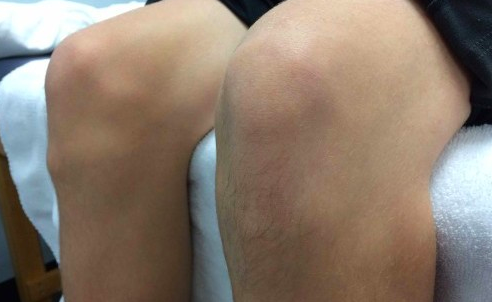Does you child complain of knee pain? Is your child limping off the field due to knee pain?
Osgood Schlatter’s disease is a condition where inflammation occurs in the growth plate of the tibial tuberosity. This is a condition that only develops in adolescents as their bones are still developing and growth plates are still present in the joints.
Why does Osgood Schlatter’s disease develop?
When growing adolescents between the age of 8 to 15 play a lot of sports and go through growth spurts the quadriceps muscles shorten and pull on the attachment site at the tibial tuberosity. This leads to a traction force developing at the growth plate of the tibial tuberosity leading to inflammation occurring.
Common sporting activities like:
- Soccer
- Basketball
- Netball
- Rugby
- Running
All contribute to the development of Osgood Schlatter’s disease.
Signs and symptoms of Osgood Schlatter’s Disease:
- Pain around the lower end of the kneecap region which worsens with activity
- A bony bump formation in severe cases at the bone below the kneecap region of the knee
- Tenderness around the lower region of the kneecap
How can physiotherapy help?
Physiotherapy is crucial in Osgood Schlatter’s disease as it can provide pain relief and keep your child active and performing at their peak. Some common treatment modalities include shock wave therapy, taping, soft tissue massage and exercise modification and prescription.
Not only this getting an assessment from an expert physiotherapist will help you determine whether you child is truly experiencing Osgood Schlatter’s Disease. Often misdiagnosis leads to adolescents getting the wrong intervention and management leading to increase in time off sports and deconditioning.
Here at Physio Ready our physiotherapists are experts in adolescent injuries. Our physiotherapists knowledge and expertise will help keep your child active and pain free.
To see our physiotherapists at Physio Ready for your child’s knee pain call us today on (02) 9249 9122 for Ryde clinic or (02) 8622 1681 for Ermington clinic.

